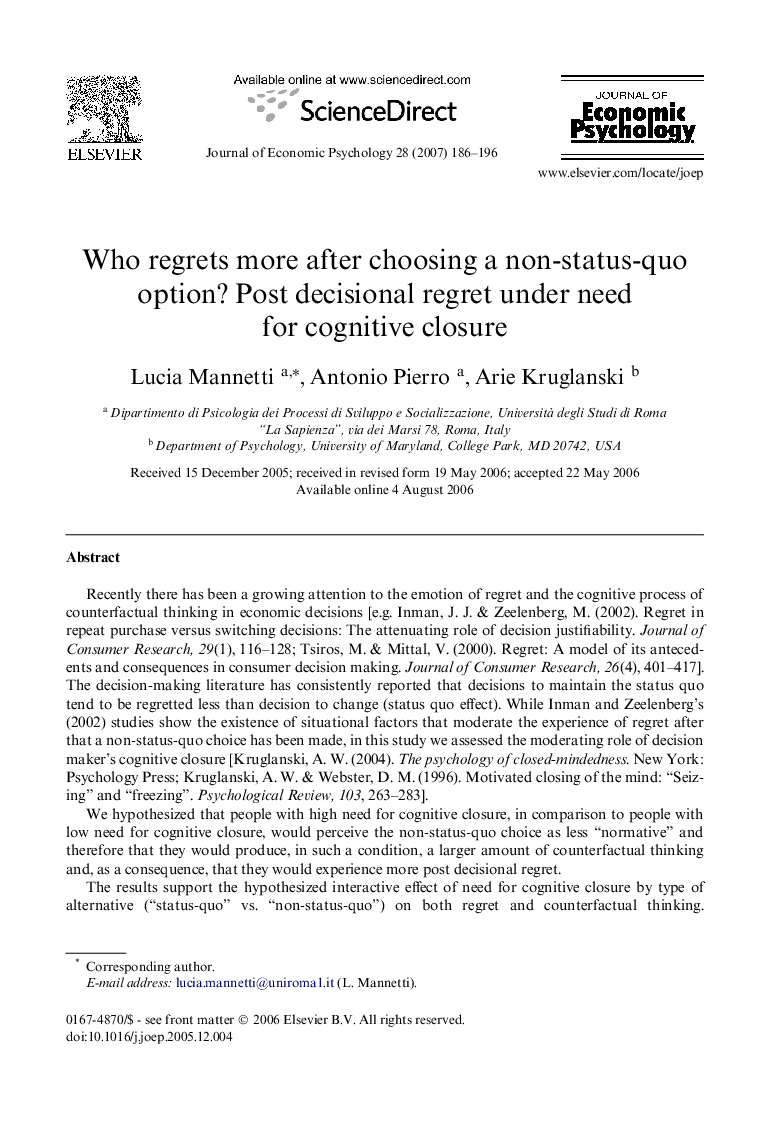| کد مقاله | کد نشریه | سال انتشار | مقاله انگلیسی | نسخه تمام متن |
|---|---|---|---|---|
| 885370 | 912677 | 2007 | 11 صفحه PDF | دانلود رایگان |

Recently there has been a growing attention to the emotion of regret and the cognitive process of counterfactual thinking in economic decisions [e.g. Inman, J. J. & Zeelenberg, M. (2002). Regret in repeat purchase versus switching decisions: The attenuating role of decision justifiability. Journal of Consumer Research, 29(1), 116–128; Tsiros, M. & Mittal, V. (2000). Regret: A model of its antecedents and consequences in consumer decision making. Journal of Consumer Research, 26(4), 401–417]. The decision-making literature has consistently reported that decisions to maintain the status quo tend to be regretted less than decision to change (status quo effect). While Inman and Zeelenberg’s (2002) studies show the existence of situational factors that moderate the experience of regret after that a non-status-quo choice has been made, in this study we assessed the moderating role of decision maker’s cognitive closure [Kruglanski, A. W. (2004). The psychology of closed-mindedness. New York: Psychology Press; Kruglanski, A. W. & Webster, D. M. (1996). Motivated closing of the mind: “Seizing” and “freezing”. Psychological Review, 103, 263–283].We hypothesized that people with high need for cognitive closure, in comparison to people with low need for cognitive closure, would perceive the non-status-quo choice as less “normative” and therefore that they would produce, in such a condition, a larger amount of counterfactual thinking and, as a consequence, that they would experience more post decisional regret.The results support the hypothesized interactive effect of need for cognitive closure by type of alternative (“status-quo” vs. “non-status-quo”) on both regret and counterfactual thinking. Mediation analysis revealed further that the influence of the interaction of need for closure by type of alternative on the experience of regret is mediated by counterfactual thinking.
Journal: Journal of Economic Psychology - Volume 28, Issue 2, April 2007, Pages 186–196